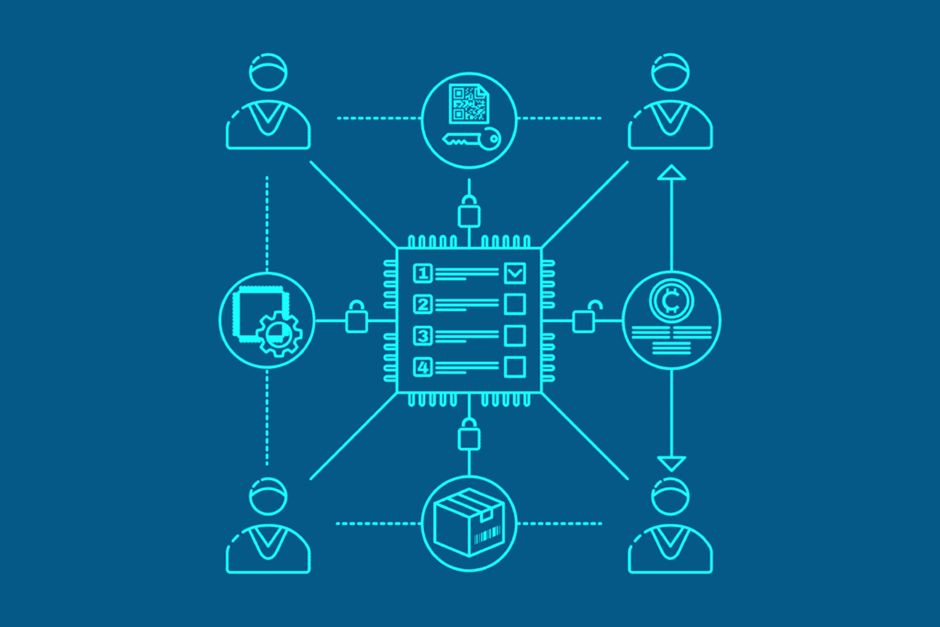
Access to the digital economy in BRICS countries
Digital Economy Blog Series: Part 2
Introduction
This is the second in our series of blog posts examining access to the digital economy in BRICS countries. In the first post, we conducted a deep dive into the multiple dimensions of access to the internet. These included access to mobile internet, net neutrality, access for women, internet affordability and the prevalence of internet shutdowns. In this post, we examine how access to decent work is calibrated in the digital economy and how BRICS countries are responding to this calibration. Access to work is a crucial part of access to the digital economy and merits a close examination.
Any transformation in the economy implies a transformation in the patterns of work. Digitalisation of the economy has meant two kinds of transformations for workers: one, increased precarity through gig work, and two, increased unemployment through automation. Both mechanisms work to affect access to decent work for all people. In this post, we examine the status of workers’ rights and movements in the digital economy in BRICS countries.
The following table provides a summary of the post. We examine four dimensions of decent work in the digital economy:
| Country | Legal recognition of gig workers’ rights | Protection of algorithm-related workers’ rights | Legal protection from workplace surveillance | Right to disconnect |
| Brazil | No | Yes | Yes | Partially |
| Russia | No | Yes | No | No |
| India | Yes | No | No | No |
| China | Yes | Yes | No | No |
| South Africa | No | Yes | No | No |
- Legal recognition of gig workers’ rights
The widespread use of digital technology to create platforms that connect service providers to consumers has led to the establishment of the “gig economy”. This refers in a general sense to the prevalence of an arrangement of short-term contracts for work, usually divided into specific tasks and payment per task. Around the world, the original promises of the gig economy – flexibility, high pay and autonomy in work – have been shown to be hollow. Gig workers are increasingly organising in the face of the lack of a living wage, mounting indebtedness, long hours and indignity of gig work. In reality, flexibility is unilateral – offered at the terms of the platform and for the benefit of the platform. One example of this is that many platforms require their workers to work for a minimum number of hours per week to qualify for payment or incentives.
Further, increasing digitally-enabled informalisation and casualisation of work in other sectors can also be seen as gig-ification of these sectors. Thus gig workers’ rights in a sense affect all workers’ rights. The following paragraphs outline the legal status of gig workers in BRICS countries.
Brazil:
Brazil has witnessed large-scale strikes by gig-workers in July 2020. The demands of the striking workers included better working conditions, removing processes that arbitrarily block gig-workers, and provision of personal protective equipment. Under Brazilian labour law, there is no formal recognition of gig work. However, this issue stands largely resolved via a recent judgement in 2019. The Superior Court of Justice, Brazil’s second-highest court, held that drivers on the ride-hailing platform Uber were to be treated as independent contractors and not as employees. As such, this ruling is set to influence the treatment of gig workers in future cases across Brazil.
Russia:
Gig workers fall into a grey area under Russian labour law as they are largely treated as entrepreneurs and not as employees. An example of this structuring is seen where ride-hailing digital platforms have direct contracts with a third party that provides information about online orders, and not with the drivers. The unequal relationship between gig workers and the platforms are seen in racist treatments along with death and accidents caused due to overworking. However, there have been widespread protests and strikes by gig workers seeking better treatment from these digital platforms.
India:
Under Indian labour law, gig workers have been partially recognised under law in order to provide certain social security benefits. A gig worker is any worker who performs work and earns from such activities outside traditional employer-employee roles ( Section 2(35), Code on Social Security, 2020). A platform worker is any person engaging in a non-employer-employee paradigm and relying on an online platform to render specific services in exchange for payments (Section 2(60), Code on Social Security, 2020). Section 114 of the Code on Social Security empowers the Union Government to notify social security schemes for gig-workers and platform workers. However, such schemes have not been notified yet and the law as of now does not obligate the government to spend on gig workers’ social security. India has seen several protests and strikes by platform workers involving specific demands for better working conditions and procedures.
China:
Government studies have reported that in 2020, approximately two hundred million people in China are involved in gig work. Detailed reporting has resulted in growing public attention and state support for increased rights of gig workers. For example, the State Administration for Market Regulation, Cyberspace Administration of China and five other government agencies jointly released guidelines requiring online food delivery platforms to not use harsh algorithmic practices, guarantee wages matching the federal minimum wage, reasonable evaluation criteria, as well as relaxation times. The All-China Federation of Trade Unions has also called for unionisation in the gig economy and worker-friendly regulations.
South Africa:
Gig workers in South Africa are generally recognised as independent contractors. However, digital platforms have an obligation to ensure that any person who is not an employee is not exposed to hazards to their health or safety (Section 9, Occupational Health and Safety Act, 1993). A group of Uber drivers won a court case that recognised them as employees of Uber in June 2017. Although this was overturned on a jurisdictional technicality, the rationale adopted by the court indicates favourable treatment in future cases. While South African labour laws do not recognise gig workers, a class action lawsuit filed in the Johannesburg Labour Court seeks to claim drivers’ rights and entitlements as employees.
- Protection of algorithm-related workers’ rights
More and more workers’ rights now have algorithms as a factor in their realisation. In gig work, algorithms can determine the quantum of incentives, the number of tasks assigned, etc. Outside of gig work, algorithms can set work targets, determine granular work patterns, calculate work efficiency, and so on. A case can easily be made for all workers to have the right to transparency of algorithmic decision-making on their work lives, in addition to a minimum level of accountability for algorithmic decisions, such as for accuracy, non-discrimination, and non-exploitation. The following paragraphs provide an overview of the legal status of general algorithm-related rights in BRICS countries.
Brazil:
Brazil’s data protection law provides data subjects with the right to request review of decisions made solely by automated processing of personal data that affect their interests (Article 20, Lei Geral de Proteção de Dados Pessoais, 2018 (LGPD)). These decisions may relate to one’s personal, professional, consumer or credit profile, or aspects of one’s personality. Further, the law mandates disclosure of criteria used to make an automated decision (Article 20(1), LGPD). If such information cannot be disclosed due to trade secrecy, the national regulatory authority is required to carry out an audit to verify any discriminatory aspects in automated processing of personal data.
Russia:
In 2019, Russia published a national strategy document on the development of AI by 2030. This document sets out basic principles for the use of AI, such as the protection of human rights, security, transparency and technological sovereignty. Additionally, Russian data protection laws prohibit the use of automated decision-making systems to effect legal consequences or legitimate interests, unless expressly provided otherwise with written consent. Further, data subjects must be given a right to opt-out and a mechanism to object to automated decision-making, which must be resolved within thirty days.
India:
India does not directly have any laws that regulate the use of algorithmic systems. However, various policies published by governmental departments recognise the need to set guidelines for algorithmic behaviour. The Draft National E-Commerce Policy 2019 – which has seen subsequent updates, but which are not in the public domain – discusses the need for AI decisions to be explainable and recommends that the government reserves the right to seek disclosure of source code and algorithms. Further, Niti Aayog has issued a set of non-binding principles recommended for AI use such as safety and reliability, equality, inclusivity, privacy, security, transparency and accountability.
China:
Chinese data protection laws regulate the use of personal data for automated decision-making, and require transparency, fairness and impartiality of the results (Article 24, Personal Information Protection Law, 2021). Further, a data subject is entitled to receive explanations or a right to opt-out in terms of automated decision-making processes being used to make significant decisions. China’s regulations pertaining to use of algorithmic recommendations in internet services shall be in effect from March 2022. These regulations provide for detailed protections for user rights, including access to information and deleting user labels in algorithms that target personal traits (Articles 16 and 17, Provisions on the Management of Algorithmic Recommendations in Internet Information Services, 2021). The regulations cover algorithmic recommendation services in work coordination services for workers, such as the requirement to protect workers’ lawful interests and to ensure salary, rest and vacation, work times, rewards and penalties.
South Africa:
South African data protection law expressly prohibits the use of automated decision making processes resulting in decisions that may have a legal or substantial impact on a data subject, unless expressly provided under law, contract or code of conduct (Section 71, Protection of Personal Information Act, 2013). The decisions covered within this ambit are based on profiles made with automated processing of personal data for their performance at work, creditworthiness, reliability, location, health, personal preferences or conduct.
- Legal protection from workplace surveillance
Surveillance has been defined as the ‘processing of information, whether personally identifiable or not, for the purposes of influencing and managing those whose data have been garnered’. Today, workplace surveillance involves the use of technological tools to monitor the activity, productivity or any other characteristics or behaviour of workers by the company. The deployment of such tools has been exacerbated by remote working during the COVID-19 pandemic. They have been deployed to provide employers with data processed from round-the-clock monitoring. Increasing acceptance of the idea of privacy being connected to an individual’s dignity raises concern regarding invasive measures adopted by employers. Employers deploying modern workplace surveillance use several tools that process sensitive personal data such as biometric and biological measurements, location tracking, and audio-based or video-based surveillance. Additionally, employers may utilise sensors and software pertaining to premises and employee devices such as CCTVs and keylogger software that allow complete scrutiny over employee devices.
The Code of Practice on the Protection of Workers’ Personal Data issued by the ILO in 1997 addressed the issue of worker data protection in a non-binding manner. It included protections such as giving employees access to the data collected on them, requiring incorrect or incomplete data to be updated, avoiding collection of data from third parties without explicit consent, and consulting employees prior to introduction of electronic monitoring of worker behaviour. However, the non-binding nature of these guidelines has impacted widespread adoption of these practices.
The European Union has put in place measures recognising privacy at the workplace. In 1997, an employee’s right to privacy was deemed applicable regarding telephone calls made from the workplace. In 2007, the ECHR expanded this right to emails and personal internet use, and recognised a reasonable expectation of privacy if the employee was not informed that they were being monitored. In 2017, the European Court of Human Rights held that workplace surveillance measures infringe upon the employee’s right to privacy. On the legislative front, the General Data Protection Regulation, 2016 has opted to allow member states to tackle this legislatively (Article 88). Following this, national-level data protection regulators have levied fines on employers for invading worker privacy in Germany and Norway.
While workplace surveillance is occasionally justified for security or productivity purposes, it is an invasive practice that raises several concerns. Constant monitoring and performance evaluation has been cited to worsen employee mental health with increase in stress, anxiety and depression. Workplace surveillance has also been connected to increased injuries for employees, and interference with worker organisation. Excessive workplace surveillance degrades the quality of access to work, and the following paragraphs outline how BRICS countries respond to workplace surveillance.
Brazil:
Historically, cases in Brazil tend to take a balanced approach towards workplace monitoring. In 2012, the Superior Labour Court held that an employer’s directive right must be weighed against the employee’s right to privacy, and that monitoring personal communication may only be permissible if there was a prohibition of personal communication at that workplace. In this case, it was held that the employer had a reasonable expectation of privacy in the workplace since he was assigned a key to a locker, and was accordingly given damages for the privacy violation. The Lei Geral de Proteção de Dados, 2018 (LGPD) is Brazil’s framework data protection law, and is modeled around the European Union’s GDPR. Under the LGPD, employers in Brazil are permitted to monitor and process personal data from employees, provided that the employee is made aware of such practices. The notice from the employer usually includes stating the purposes for which the data is collected, its retention timelines, and the rights of the employee. Further, in specific instances, the LGPD permits processing of personal data where necessary to fulfil the legitimate interests of the employer, provided that the processing is not violative of the employee’s fundamental rights.
Russia:
Russian law recognises the need for workplace monitoring, and grants employers broad powers to surveil employees. Chapter 14 of the Labour Code of the Russian Federation (Russian Labour Code) discusses data protection principles for the employer processing employees’ personal data. The Russian Labour Code recognises that employee personal data is information necessary for the employer in terms of labour relations. It further imposes consent norms regarding the collection or transfer by employers of employees’ personal data vis-a-vis any third party. Article 89 provides employees with rights to seek data protection, including the right to access and correct their data or to seek redressal against violations of employee data protection norms. Additionally, Russian case law permits employers to use CCTV surveillance with notice to employees and to install monitoring devices without requiring changes in employment contracts.
India:
The Information Technology (Reasonable security practices and procedures and sensitive personal data or information) Rules, 2011 (India IT Rules) set out certain compliances relating to data protection. The India IT Rules require body corporates that collect personal data to frame a privacy policy, ensure that adequate notice is provided to the person concerned and to state the purpose and intended recipients when personal data is collected. Further, the India IT Rules require permission from the data subject prior to disclosure of personal data to any third party. However, this can be waived contractually or if required to be shared with government agencies. It was only recently in 2017 that the Supreme Court recognised the right to privacy emanating from Article 21 of the Indian constitution. A draft legislation on data protection recognises processing of employees’ personal data and permits processing of data for (a) recruitment or termination; (b) provision of services, (c) verifying attendance; and (d) any other activity relating to assessment of the employees’ performance, without requiring consent from the employee.
China:
Chinese law does not directly address the issue of workplace surveillance. However, its legal status can be surmised from sectoral laws applicable to employment and data protection. Under the Labour Contract Code, the employer is entitled to acquire basic information about the employee that may pertain to the labour contract, while the employee is entitled to know the working conditions and any other matter they wish to enquire about. China has also enacted the Personal Information Protection Law, 2021 (PIPL). Article 13 permits employers to process personal data to implement human resource management, provided that this is in accordance with labour rules and regulations. This implies permission to use workplace monitoring in accordance with human resource policies. However, the PIPL also requires notice to be provided, along with rights of access, updation and deletion. Chinese employers have been reported to deploy extremely invasive tools to monitor workers’ emotional states for workers within factories, public transportation, state-owned companies and the military. This is accompanied by interview reports of employers seizing employees’ phones and monitoring every aspect of their employees’ behavior on the internet, such as the web pages visited, chat content on social media and pages viewed during the lunch break.
South Africa:
The right to privacy, including the right not to have the privacy of one’s communication infringed, is guaranteed under South Africa’s constitution adopted in 1996 (Section 14). Further, the Protection of Personal Information Act, 2013 (POPIA) is in effect from 1 July 2021, and sets out a data protection framework. The POPIA permits personal data to be processed for pursuing the legitimate interests of the data fiduciary. Under South African laws, employers are permitted to deploy workplace monitoring tools, provided that the employee is given notice regarding the use of monitoring tools in line with legitimate business interests. Further, workplace surveillance that includes the interception of personal communications is generally prohibited unless it falls within the exceptions set out by the Regulation of Interception of Communications and Provision of Communication-related Information Act 70 of 2002 (RICA). RICA provides for communications to be intercepted with the consent of the employee, which may be taken as part of an employment contract. RICA also provides for non-consensual interception of indirect communications in connection with carrying on of business activities.
As can be seen from the legal provisions noted above, there is near uniformity in recognising the legitimacy of workplace monitoring under the laws of Russia, India, China and South Africa for business interests. In this regard, we note that the jurisprudence in Brazil is balanced to recognize a reasonable expectation of privacy barring any express notice of monitoring.
- A right to disconnect
The right to disconnect refers to the worker’s right to disengage with their work and refrain from work-related communications such as electronic communications during non-work hours. While some labour laws include a maximum work hours per day and require overtime to be paid for excess time, the considerations of the digital economy make a right to disconnect very relevant. This has been observed during the work-from-home guidelines enforced during the COVID-19 pandemic. Employees mandated to remote working have reported lesser work-life balance, lower productivity and higher stress levels, in addition to blurring the lines between home and work.
The right to disconnect has gained traction in recent years, with France enacting the right to ignore work emails outside work hours from 2017. In 2017, Italy also introduced the right to disconnect from technological equipment as part of the stipulations governing the work performed by an employee outside office premises. Colombia enacted the Labour Disconnection Law in 2022 which guaranteed workers and public servants the right to not be contacted by technological means or otherwise for matters of work outside working hours. The right to disconnect is also recognised in other South American countries such as Uruguay, Panama, Chile and Argentina. In the context of the pandemic and the blurring of boundaries between work and home, Belgium has also issued a right to disconnect limited to public servants. Certain countries such as Portugal have chosen to levy fines for employers contacting workers outside office hours. Bills mooting the right to disconnect have also been put forward in legislative bodies for Singapore and Philippines, reflecting global conversations and legislative efforts on this issue.
Brazil:
Under Brazilian law, the right to disconnect is recognized by the government, albeit as a non-binding recommendation to employers. On September 10, 2020, the Brazilian Public Labor Prosecutor’s Office published remote working guidelines in response to remote working conditions triggered by the COVID-19 pandemic. These non-binding recommendations towards employers included adoption of digital etiquettes that specify schedules, assure legal time off and the right to disconnect.
Russia:
Russia does not formally recognise or grant the right to disconnect. In this regard, the Russian Labour Code states that unless working hours have been contractually agreed to within employment agreements or collective agreements, a remote worker is entitled to set their working hours at their own discretion. This flexibility is used to counter demands for the right to disconnect or even overtime pay for remote workers.
India:
India does not recognise any right to disconnect from work. India’s labour laws state certain maximum limits of work hours per day for factory workers and workers at shops and establishments: for example, see Section 8 of the Delhi Shops and Establishments Act, 1954 and Section 54, Factories Act, 1948. The work-from-home guidelines imposed during the pandemic have resulted in an ‘always available’ status post-working hours for employees. In 2018, a Right to Disconnect Bill was introduced in the Parliament. Even though the Bill did not pass into an Act, it acted as a conversation-starter for the right to disconnect in legislative terms in India.
China:
China does not recognise a right to disconnect from work. The bulk of China’s digital economy employees such as coders, engineers, programmers, software developers, game designers and other IT manpower work a ‘996’ schedule- referring to a 9AM-9PM workday for six days a week. Overwork among white-collar workers with China’s tech industry, including emails sent at 3AM, was reported as a factor in an app-developer’s death. Further, the requirement to pay 1.5 times the wages for overtime does not kick in as the work done outside working hours is classified by the employer as ‘voluntary’, exempting them from paying overtime wages.
South Africa:
South Africa does not recognise a right to disconnect from work. Surveys in South Africa indicate that 88% of South African employees work longer hours than prior to the pandemic, and 32% of employees expect to answer emails outside working hours. South African labour laws recognise the element of overtime and increased wages for employees below a certain financial threshold. However, persons above this threshold are not granted a right to disconnect. Rather, those above the eligibility threshold for overtime wages are simply not eligible for increased wages.
Conclusion
An analysis of the rights of workers in BRICS countries clarifies two points:
- New rights need to be formalised: This includes rights in the context of algorithmic work management, including rights to transparency, accountability and non-discrimination in work contexts. This also includes a formalised right to privacy at work, and a right to disconnect from work after work hours.
- Existing rights need to be extended to new types of workers: Existing labour rights, such as those of workplace safety, job security, equal pay for equal work, unionisation etc. need to be extended to gig workers based on the de facto full-time nature of their work, and to other informal and casual workers in the digital economy.
With work transforming due to digital mediation among employers and employees, BRICS countries need to update their labour laws to ensure that new technological arrangements do not result in a derogation of workers’ rights from the status quo.
The authors would like to thank Dhruv Holla (NLSIU) for his valuable research assistance towards this post.
Views are personal.
Read Part 1 on Access to the Internet here.




